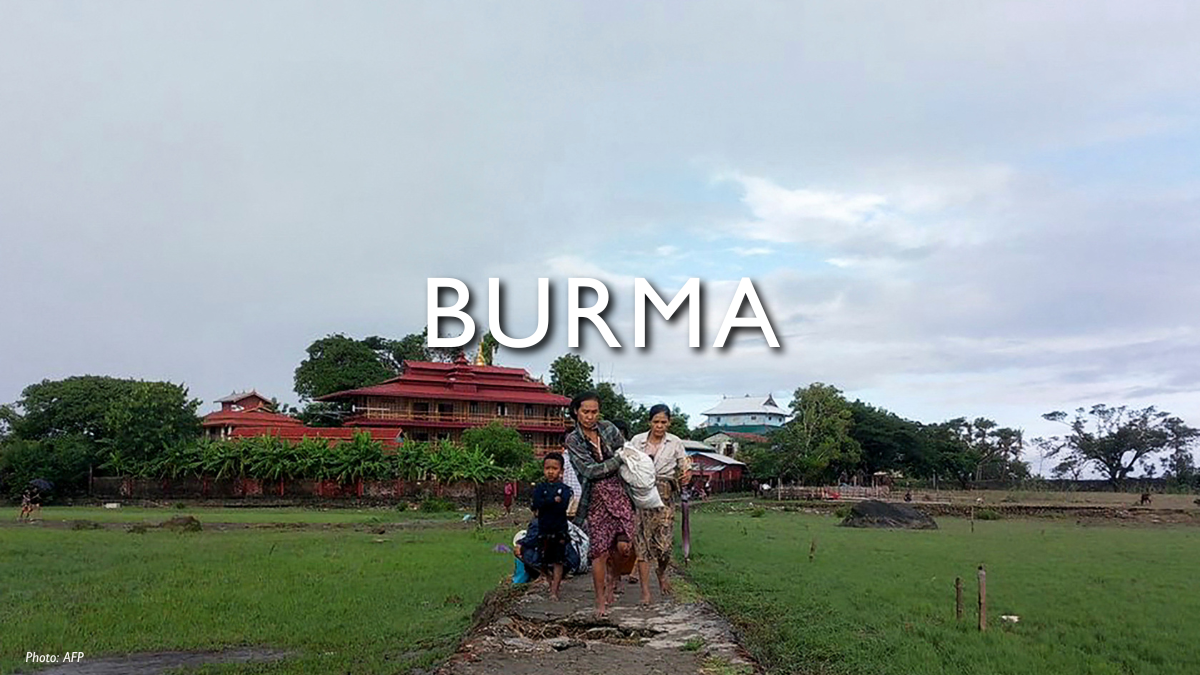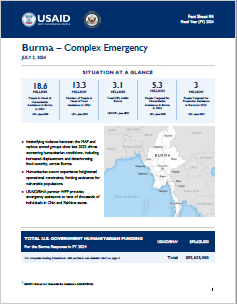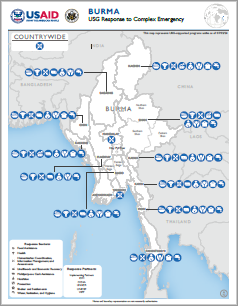
On February 1, 2021, Burma’s military staged a coup d’état against the civilian government during which soldiers detained senior civilian government officials. Since the coup d’état, armed clashes between the Myanmar Armed Forces, ethnic armed organizations, and other local non-state armed groups across Burma have resulted in the internal displacement of more than 2.8 million individuals and a deteriorating humanitarian situation across the country as of June 2024. Ongoing violence and restrictions by the military authorities create significant access challenges for relief actors to reach populations in need. In addition, Burma is prone to climatic shocks—including cyclones and flooding—such as Tropical Cyclone Mocha in May 2023, which made landfall over Rakhine State and generated significant humanitarian needs.
Humanitarian needs have remained particularly high among ethnic Rohingya—a minority group not recognized by Burma’s military forces and denied rights to citizenship, freedom of movement, and public services—since Burma’s military forces launched large-scale and indiscriminate military operations largely targeting Rohingya in Rakhine State in October 2016 and August 2017, which has driven nearly 966,000 Rohingya to flee to neighboring Bangladesh as of 2024. An estimated 633,000 Rohingya remain in Rakhine as of early 2021, according to the Office of the UN High Commissioner for Refugees (UNHCR).
The United States continues to deliver emergency food assistance—including cash transfers for food and in-kind food—and support health, livelihood, nutrition, protection, shelter, and water, sanitation, and hygiene services for vulnerable populations in Burma.


